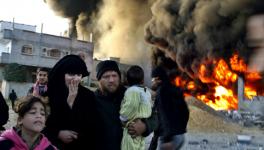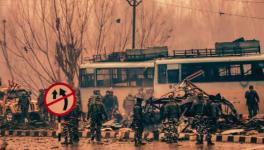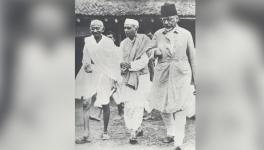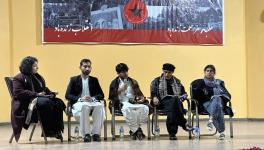UN Listing of Masood Azhar: Price of a Diplomatic Victory
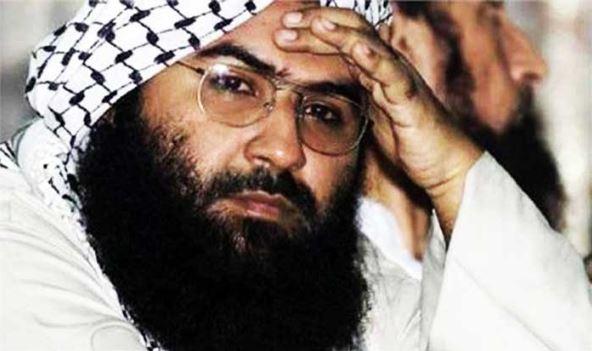
Indian diplomacy can pat itself on the back for getting China to lift its “technical hold” on listing Maulana Masood Azhar as a “global terrorist”. Once China indicated that it did not want the matter to come up for vote in the United Nations Security Council (UNSC), where it faced possible isolation, and with the Indian political leadership willing to make a concession to China in the shape of dropping reference to the Pulwama attack, Kashmir or Pakistan, the listing became possible. For the Narendra Modi-led Bharatiya Janata Party (BJP) government, this is an incremental boost for its election campaign. However, it is worth taking a closer look at this diplomatic gain.
The UN statement says that “Mohammad Masood Azhar Alvi was listed on 1 May 2019 pursuant to paragraphs 2&4 of resolution 2368 (2017) as being associated with Al Qaeda for terrorist activities”. The resolution 2368 (2017) is related to Daesh and Al Qaeda and principally aims at preventing their members from operating freely. The statement does not oblige the government concerned to prosecute or bring to book the person listed. This is left to the discretion of the governments concerned.
What does listing then imply? Listing is symbolic and the previous ones against Lashkar-i-Tayaba and Jaish-e-Mohammed (JeM) have not prevented them from operating freely in Pakistan. For instance, JeM was listed as far back as October 2001 after the US accused it of being linked to Al Qaeda. Indeed, despite listing by UNSC, JeM as well as LeT have continued to operate openly in Pakistan. The reasons are that the military establishment in Pakistan saw them as “assets” despite JeM being linked to the attack on Indian parliament in December 2001 and LeT linked to the Mumbai attack in November 2008. So, unless the Pakistan military relents, not much may follow. To put it another way, if the government of the day does not want to prosecute home-grown terrorists in India accused of heinous crimes and its agencies can ensure that cases against them are adequately weakened to ensure that the perpetrators escape, as we have seen in the Samjhauta blast, Mecca Masjid blast as well as the Malegaon case, there is little any outside power can do.
UN listing merely asks the host government, Pakistan in this case, to ensure that such persons and/or organisations are stopped from carrying out their incendiary activities. It leaves it to the government concerned to do the needful. Listing does not mean that he or anyone else India wants punished, will be handed over to India or even prosecuted for their crimes. Only that his assets would be frozen, there is ban on his travel and arms cannot be procured by him. In other words, it is symbolic not substantive.
Now, Hafeez Saeed, too, was listed as a “global terrorist” years ago but despite that, successive Indian governments have complained that the Pakistan government has not done anything to stop him from operating. Remember Hafeez Saeed was accused by Indian authorities for the Mumbai 26/11 attack where 169 persons were killed in 2008. So, the larger issue is that although JeM was listed by UNSC in October 2001 for being a global terrorist group linked to Al Qaeda and still carried on with its criminal activities, then what good will listing of an ailing Azhar do today?
The question is also that a person and his organisation responsible for carrying out a fidayeen attack in Jammu and Kashmir and attacks on civilians will not be brought to justice for his crimes but at best just be prevented from carrying out activities, which he in any case cannot do because of his reported ill-health.
So, why was it so important for India to list Azhar as a global terrorist and stake so much on his listing, when at end of the day, so to speak, it may not mean much. In any case, Pakistan placed Azhar under house arrest at Markaz Subhan Allah in Bhawalpur soon after the Pulwama suicide bombing and subsequently, reports suggest, he has been moved elsewhere.
By raising the stakes so high to get Azhar listed, there is another angle to be kept in mind. The US Secretary of State took all the credit for the listing and praised US diplomats for compelling China to shift its stance by taking the matter to UNSC.
They also refused to heed the Chinese government’s plea to defer the decision till after India’s general election, suggesting a date after May 15. So, the US and India played the ‘good cop’ versus ‘bad cop’ game and thus managed to corner China into dropping its opposition to listing him by the 1267 committee. While this diplomatic gain is real, in the age of transactional relation, where every “give” requires a “take”, there is a price to be paid for US aiding Indian diplomatic effort.
It’s is here that the pitch gets further queer. Two US officials, principal deputy assistant secretary of state Alice Wells and assistant secretary for defence Randal G Shriver, recently travelled to India to inform their Indian counterparts that there will be no more waivers for India to purchase Iranian oil. They not only referred to US diplomatic efforts to get Azhar listed, but also asked India to see the “bigger picture” where it faces a challenge from China, and US is keen to boost India’s economic and military strength.
The listing on May 1 and stopping of oil imports from Iran by India from May 2, cannot not be missed. Indian consumers now stand to pay higher oil prices, and India stands to lose a low sulphur crude from Iran which is more lucrative for refineries and replace Iranian oil which came at discounted price, free insurance and freight and up to 60 day credit, will be replaced with more expensive crude oil. Indeed, what is even more ridiculous is that India would be replacing Iranian crude with Saudi and US crude, where the latter will invite higher freight rates.
Seen in this light, the raising of stakes for getting a known criminal listed, a symbolic act, does not mean much. But it simply notches a diplomatic rebuff to Pakistan and China at much too high a price of halting oil imports from Iran. This is excessively disproportionate to what India has actually gained. In this sense it is an intangible gain in exchange for a tangible loss.
Get the latest reports & analysis with people's perspective on Protests, movements & deep analytical videos, discussions of the current affairs in your Telegram app. Subscribe to NewsClick's Telegram channel & get Real-Time updates on stories, as they get published on our website.











